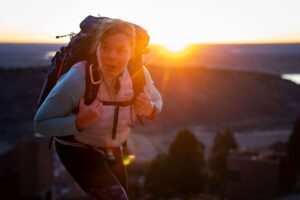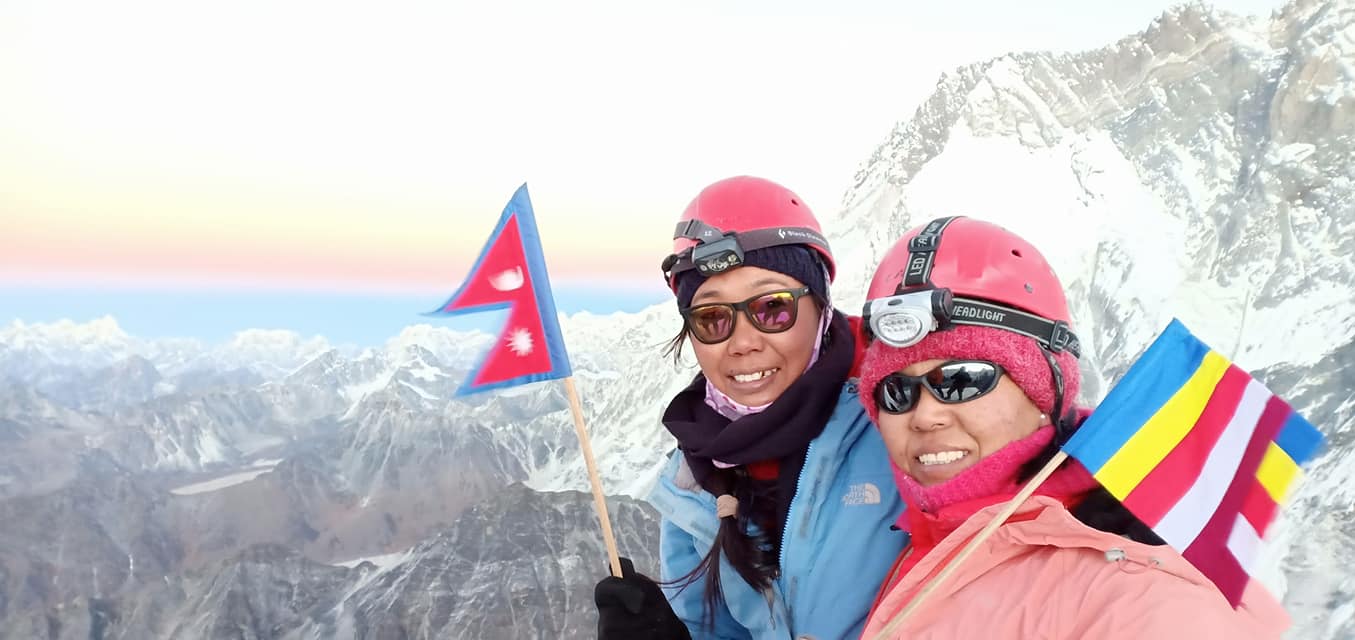
The Reason Why These Sherpa Women Are Scaling Mount Everest Will Uplift You
by Heather Cassell
Two Sherpa widows plan to tackle Mount Everest together to end their journey of grief of losing their husbands to the mountain and to empower women.
“We are going to climb the mountain to close our pain and to honor our husbands by reaching the peak they could not,” the two women said in a statement announcing their journey in December.
The women will make their ascent upon the very mountain their husbands climbed guiding foreign climbers to the summit in May.
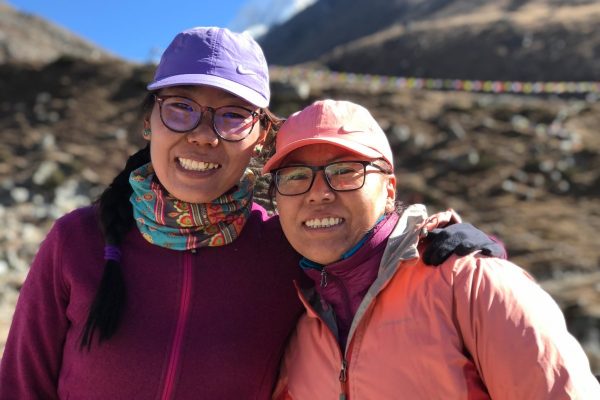
Photo Credit: Courtesy of Furdiki Sherpa’sFacebook)
Sherpas are a native to the Himalaya mountains in the region of Mount Everest as well as parts of China, Bhutan, India, and Nepal. However, many people, especially climbers, know the ethnic group Sherpa as guides to Mount Everest and the Himalaya Mountains.
Mount Everest straddles the Nepal-China border and can be reached from both countries.
Nepal is home to eight of the world’s 14 highest mountains.
The women’s husbands died in two separate accidents.
Furdiki Sherpa’s husband was fixing ropes for his foreign clients on the 29,035 foot (8,850 meters) when he died in 2013. Media accounts didn’t reveal how he died.
Nima Doma Sherpa’s husband was one of 16 Sherpas killed in an avalanche near the base camp in 2014.
An estimated 4,833 people have climbed Mount Everest since it was first scaled by New Zealander Sir Edmund Hillary and Tenzing Norgay Sherpa in 1953, Everest blogger Alan Arnette told the New York Times.
An estimated 500 of those Everest climbers were women, according to climbing officials.
The first woman to scale Everest is the late Junko Tabei. The then 35-year-old mountaineer reached the summit in 1975. She died of cancer at the age of 77 in 2016, reported Time Magazine.
Both women have completed training and have scaled two smaller peaks, Nima, 36, told the Times.
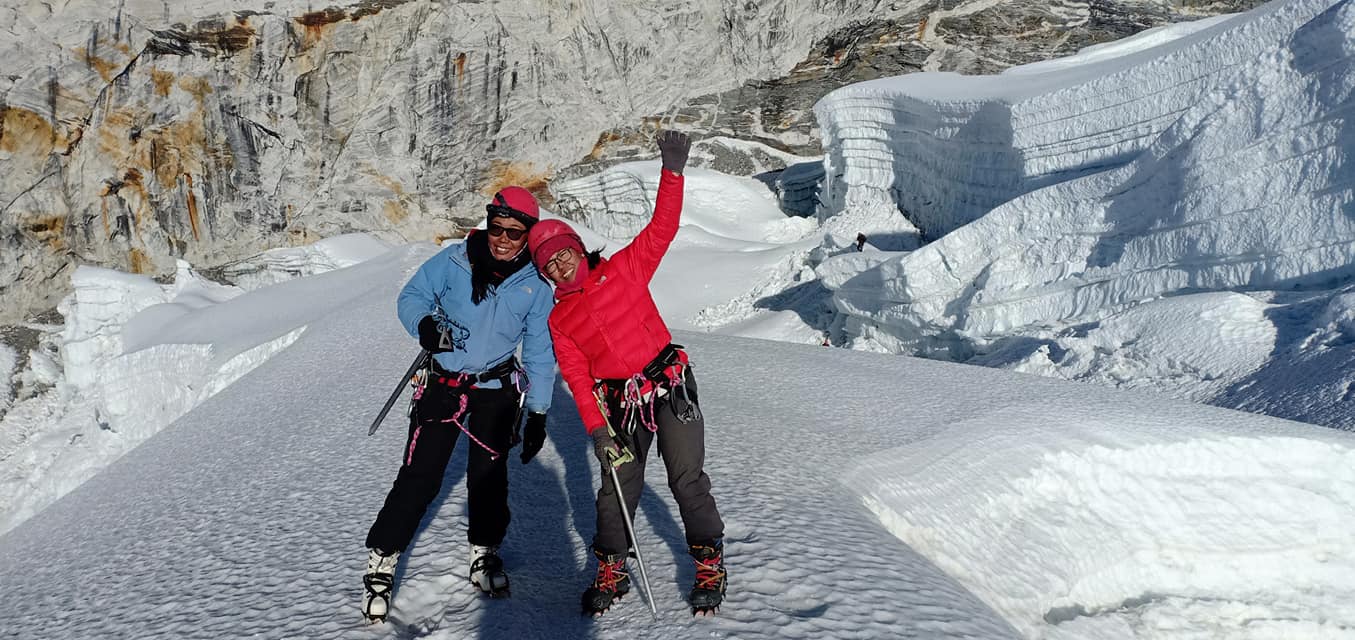
(Photo: Courtesy of Furdiki Sherpa’s Facebook)
Following the death of her husband, Furdiki, a 42-year-old mother of two, said she experienced immense economic hardship. Somehow, she was able to see through those challenges and decide to keep her eye on Everest’s summit: A dream she shared with her late husband.
“The death of my husband is not the end of my life,” said Furdiki. “I am undertaking the expedition to spread the message that windows can accomplish even such hard adventures.”
Alan applauded the two women calling them impeccable examples of strength and acceptance, he told See the People.
“Women are more risk-averse,” he said. “But I think it’s good these women are raising awareness that Sherpa women are as strong as Sherpa men.”
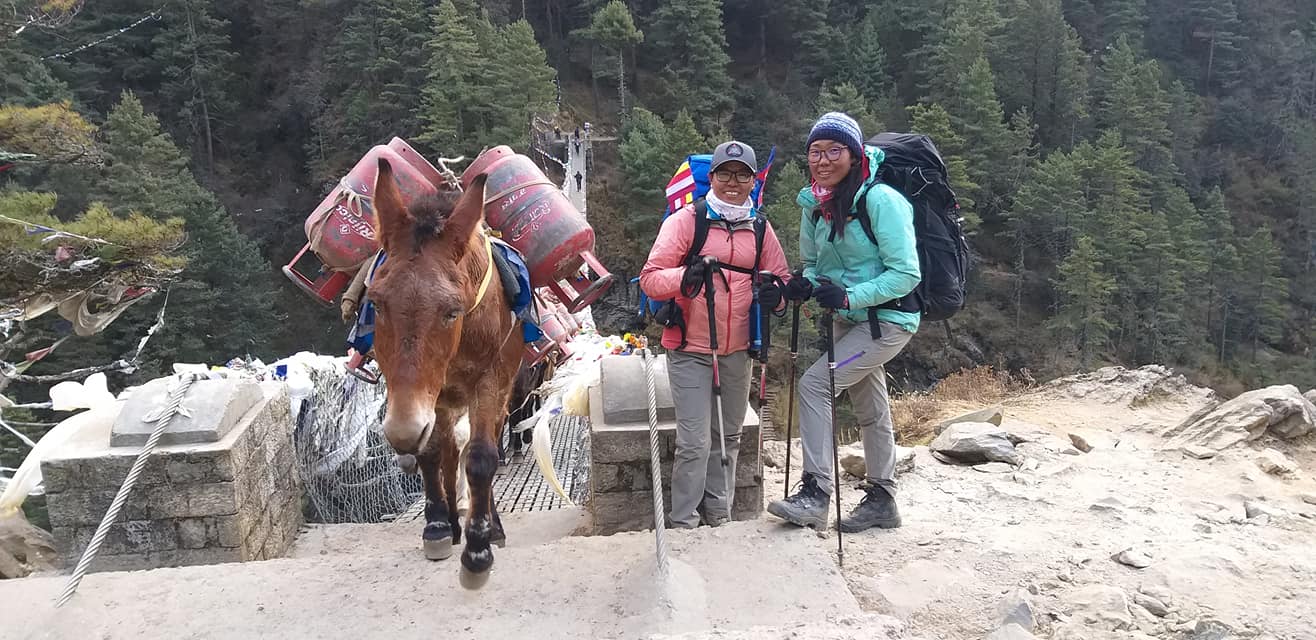
(Photo: Courtesy of Furdiki Sherpa’s Facebook)
Book your next trip to Nepal with Girls That Roam Travel. Contact Heather Cassell at Girls That Roam Travel at 415-517-7239 or at .
To contract an original article, purchase reprints or become a media partner, contact .





